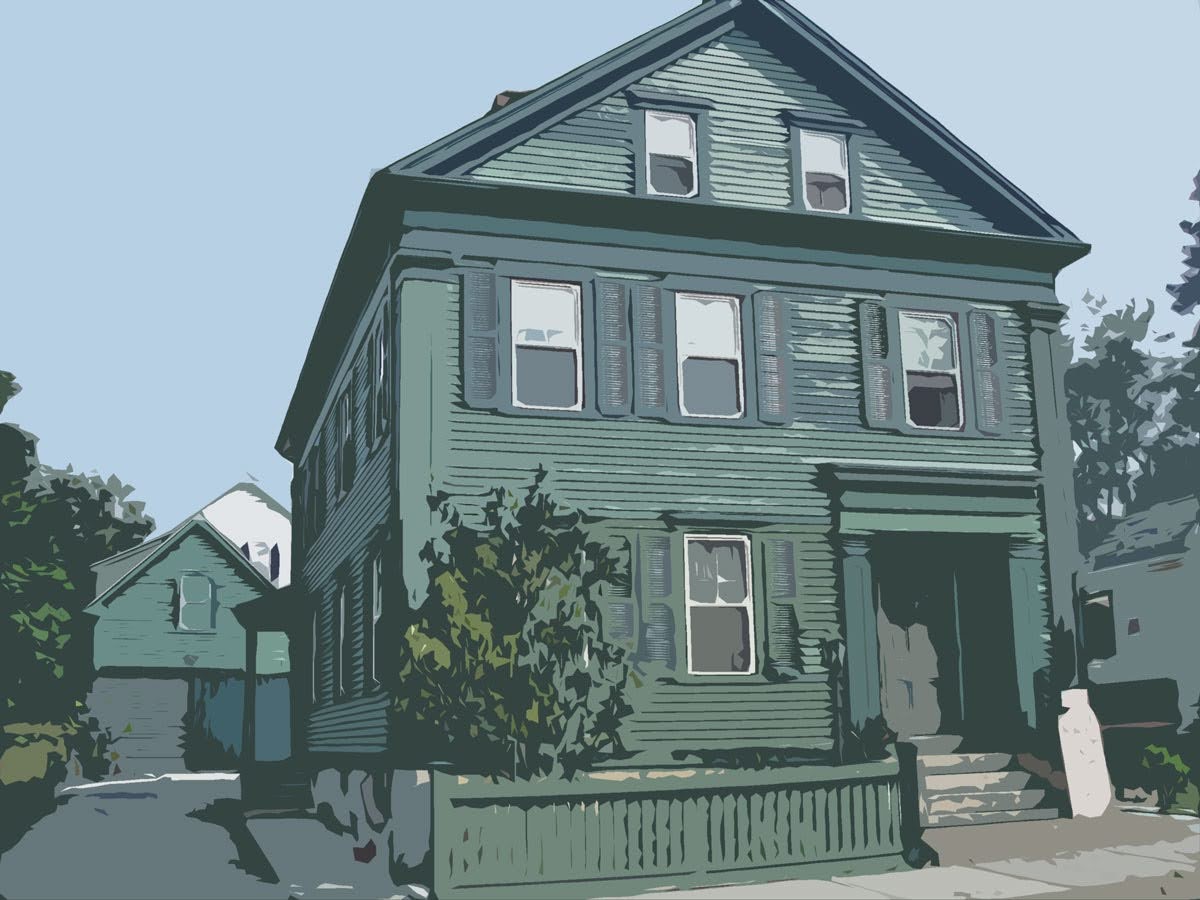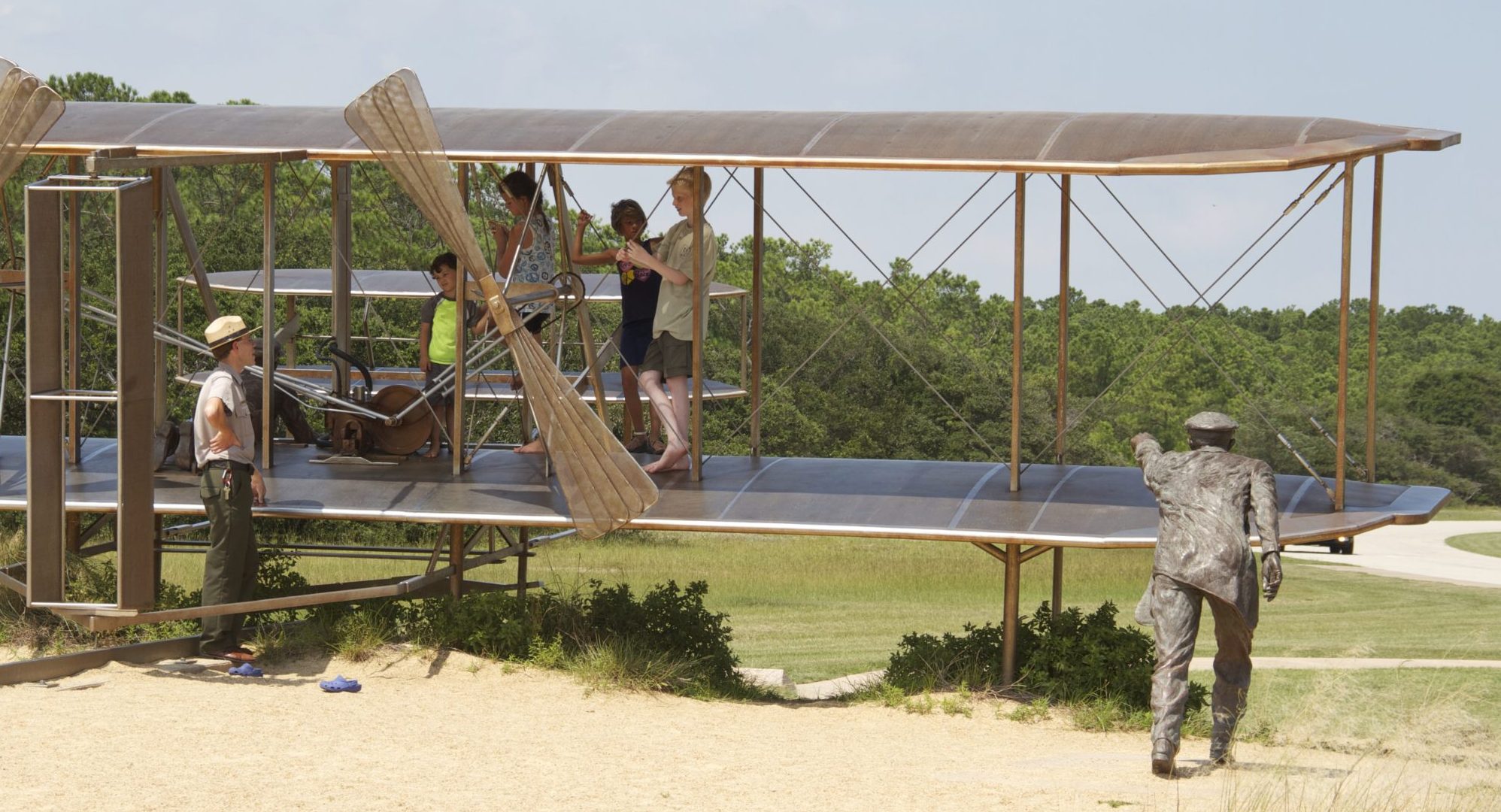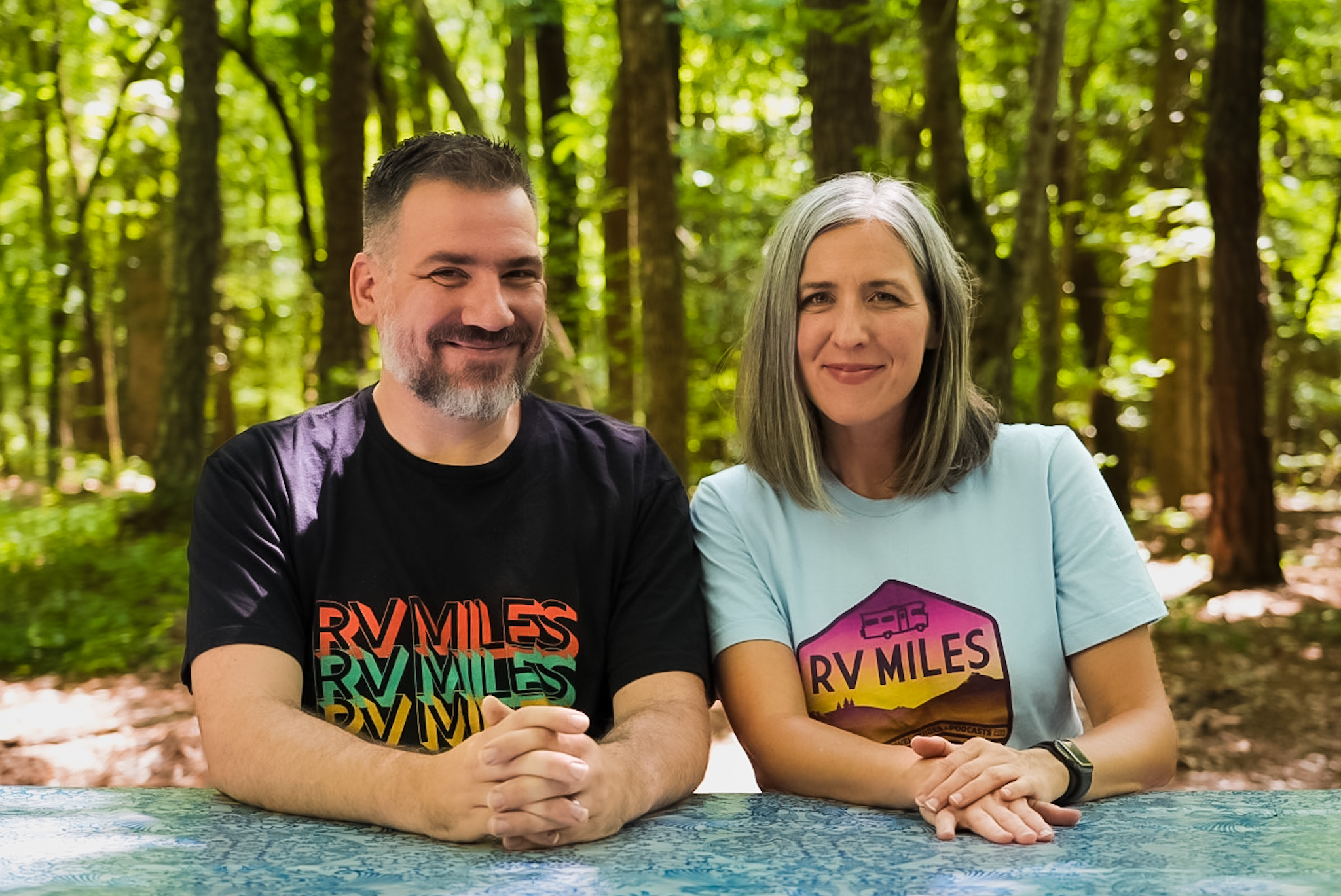By Jason Epperson
Listen Below:
Lizzie Borden took an axe,
And gave her mother forty whacks;
When she saw what she had done,
She gave her father forty-one.
Actually, the bordens received only 29 whacks, not the 81 suggested by the famous ditty, but regardless, Lizzie Borden’s alleged murder of her parents is one of the most famous murder trials in history. And today, the ghosts of her murdered parents.
This week, on our special Halloween edition of the See America podcast, the Lizzie Borden Bed & Breakfast / Museum, where you too can sleep if you dare, as the spectors of Andrew and Abby Borden haunt the house.
92 Second Street, Fall River, Massachusetts.
Andrew Borden bought the home in 1872 and immediately had it remodeled from a two-tenant dwelling into a place his small family could call home. He chose the house due to its pragmatic location—a short walking distance to his businesses on main street, one block over. It sat amid other businesses, horse stables, stores, a laundry, and a make-shift restaurant.
Andrew’s wife kept house and took pride in it, while his two daughters Emma and Lizzie looked about at the heavily floral-covered walls as a prison. A young Irish maid, Bridget Sullivan, was the only other inhabitant.
Story of Lizzie Borden:
Lizzie Andrew Borden was born July 19, 1860, in the town she would live her whole life in, Fall River, Massachusetts, to Sarah Anthony and Andrew Jackson Borden. Andrew grew up in very modest surroundings and struggled financially as a young man, despite being the descendant of wealthy and influential local residents. He eventually prospered in the manufacture and sale of furniture and caskets and went on to become a successful property developer and president of two banks. At the time of his death, his estate was valued at $300,000 about eight and a half million today.
Despite his wealth, Andrew was frugal. The Borden home lacked indoor plumbing and electricity although those were common accommodations for wealthy people at the time. The residence at 92 Second Street was in an affluent area, but the wealthiest residents of Fall River lived in the more fashionable neighborhood, “The Hill.”
Lizzie Borden and her older sister, Emma had a relatively religious upbringing and were very involved in church activities, including teaching Sunday school to children of recent immigrants.
Three years after the death of Emma and Lizzie’s mother Sarah, Andrew married Abby Gray. Lizzie stated that she called her stepmother “Mrs. Borden” and believed that Abby had married her father for his wealth. Lizzie and Emma rarely ate meals with their parents.
Tensions had been rising in the Borden home in 1892. Especially over Andrew’s gifts of real estate to various branches of Abby’s family. After their stepmother’s sister received a house, the sisters had demanded and received a rental property—the home they had lived in until their mother died—which they purchased from their father for $1. They then sold the property back to their father for $5,000 (or $142,000 today).
In May, Lizzie had built a roost for pigeons that were making the Borden’s barn their home. Andrew, believing they were attracting local children, killed them all with a hatchet.
A family argument in July prompted both sisters to take extended “vacations” in New Bedford. After returning to Fall River, Lizzie chose to stay in a local rooming house for four days before returning to the family residence.
When she returned home, the entire household became violently ill. Abby had feared poisoning, as Andrew had not been a popular man.
John Morse arrived at the home three days after Lizzie, on the evening of August 3, and slept in the guest room that night. After breakfast the next morning, at which Andrew, Abby, Lizzie, Morse, and the Bordens’ maid Bridget “Maggie” Sullivan were present, Andrew and Morse went to the sitting room, where they chatted for nearly an hour. Morse left around 8:48 am, planning to return to the Borden home for lunch at noon. Andrew left for his morning walk sometime after 9.
Although the cleaning of the guest room was one of Lizzie’s and Emma’s regular chores, Abby went upstairs sometime between 9:00 am and 10:30 am to make the bed. After entering the room, she was struck with a hatchet, facing her killer, and then 17 more times.
When Andrew returned at around 10:30 am, his key failed to open the door, so he knocked for attention. The maid went to unlock the door; finding it jammed. She heard laughter coming from the top of the stairs.
Lizzie returned downstairs and informed the maid of a department store sale and permitted her to go, but Sullivan felt unwell and went to take a nap in her bedroom instead. She was in her third-floor room, resting from cleaning windows when she heard Lizzie call from downstairs, “Maggie, come quick! Father’s dead. Somebody came in and killed him!” Andrew was slumped on a couch in the downstairs sitting room, struck 10 or 11 times.
Lizzie Borden’s initial answers to the police officers’ questions were strange and contradictory. Initially, she reported hearing a groan, or a scraping noise, or a distress call. Two hours later she told police she had heard nothing and entered the house not realizing that anything was wrong. When asked where her stepmother was, she recounted Abby receiving a note asking her to visit a sick friend. She also stated that she thought Abby had returned and asked if someone could go upstairs and look for her. Sullivan and a neighbor were halfway up the stairs, their eyes level with the floor when they looked into the guest room and saw Abby lying face down on the floor.
Most of the officers who interviewed Borden reported that they disliked her attitude; some said she was too calm and poised. Despite her changing alibis, nobody bothered to check her for bloodstains. Police did search her room, but at the trial, they admitted to not doing a proper search because Borden was not feeling well.
In the basement, police found two hatchets, two axes, and a hatchet-head with a broken handle. The hatchet-head was suspected of being the murder weapon as the break in the handle appeared fresh and the dust on the head appeared to have been deliberately applied to make it look as if it had been in the basement for some time. However, none of these tools were removed from the house.
Because of the mysterious illness that had stricken the household before the murders, the family’s milk and Andrew’s and Abby’s stomachs were tested for poison; none was found. Residents suspected Lizzie of purchasing ‘hydrocyanic acid in a diluted form’ from the local drugstore. She defended that she inquired about the acid, so she could clean her furs.
The night following the murders, Lizzie and Emma’s friend, Alice Russell, stayed with them while Morse spent the night in the attic guest room. Police were stationed around the house during which an officer said he saw Borden enter the cellar with Russell, carrying a kerosene lamp and a slop pail. He stated both women then exited the cellar, after which Borden returned alone; though he was unable to see what she was doing, he stated it appeared she was bent over the sink.
On August 5, Morse left the house and was mobbed by hundreds of people; police had to escort him back to the house.
On August 6, police conducted a more thorough search of the house, inspecting the sisters’ clothing and confiscating the broken-handled hatchet-head. That evening a police officer and the mayor visited the Bordens, and Lizzie was informed that she was a suspect in the murders. The next morning, Russell entered the kitchen to find Borden tearing up a dress. She explained that she was planning to put it on the fire because it was covered in paint. It was never determined whether it was the dress she had been wearing on the day of the murders.
Lizzie Borden appeared at the inquest hearing on August 8. She had been prescribed regular doses of morphine to calm her nerves. Her behavior was erratic, and she often refused to answer a question even if the answer would be beneficial to her. She often contradicted herself and provided alternating accounts of the morning in question, such as saying she was in the kitchen reading a magazine when her father arrived home, then saying she was in the dining room doing some ironing, and then saying she was coming down the stairs. She also said she removed her father’s boots and put slippers on him, while police photographs clearly showed him wearing his boots.
The inquest testimony was later ruled inadmissible at her trial. Prosecuting attorneys included future United States Supreme Court Justice William H. Moody. Borden’s attorneys included former Massachusetts governor George D. Robinson. Five days before the trial’s commencement, another ax murder occurred in Fall River, while Lizzie Borden was in Jail. The similarities were striking.
A prominent point of discussion in the trial was the hatchet-head found in the basement, which was not convincingly demonstrated by the prosecution to be the murder weapon. Fingerprint technology was now common, but investigators didn’t use it because they didn’t trust it. Prosecutors argued that the killer had removed the handle because it would have been covered in blood. One officer testified that a hatchet handle was found near the hatchet-head, but another officer contradicted this. Though no bloody clothing was found at the scene, Russell testified that on August 8, 1892, she had witnessed Borden burn a dress in the kitchen stove, saying it had been ruined when she brushed against wet paint.
The presiding Associate Justice, Justin Dewey, who had been appointed to the bench by Lizzie’s former governor attorney, delivered a lengthy summary that supported the defense. After an hour and a half of deliberation, the jury acquitted Borden of the murders.
After the trial, the Borden sisters moved into a large, modern house in The Hill neighborhood in Fall River, flush with cash from their inheritance. Around this time, Lizzie began using the name Lizbeth A. Borden. At their new house, which Lizbeth dubbed “Maplecroft”, they had a staff that included live-in maids, a housekeeper, and a coachman. Because Abby was ruled to have died before Andrew, her estate went first to Andrew and then, at his death, passed to his daughters as part of his estate.
Despite the acquittal, Borden was ostracized by Fall River society. Her name was again brought into the public eye when she was accused of shoplifting in 1897 in Providence, Rhode Island. In 1905, shortly after an argument, Emma moved out of the house. She never saw her sister again.
Borden was ill in her last year following the removal of her gallbladder; she died of pneumonia on June 1, 1927, in Fall River. Funeral details were not published and few attended. Nine days later, Emma died from chronic nephritis at the age of 76 in a nursing home, New Hampshire. The sisters, neither of whom had ever married, were buried side by side in the family plot in Oak Grove Cemetery.
Visiting The Lizzie Borden Bed & Breakfast / Museum:
Today, the house is just as it was. The furnishings retain their rightful place, the décor has been painstakingly duplicated, and the original hardware and doors are still intact. Artifacts from the murder case are displayed while memorabilia from the era line shelves and mantel tops. Visitors are transported back to that morning when a perfect storm of events culminated in a double murder. You can take a tour of the house, or if you dare, stay the night. You can sleep in the “Lizzie & Emma Suite, the Andrew and Abby Suite, or the John Morse room, the one that Abby was killed in.
Maplecroft, Lizzie’s mansion on “the Hill,” is only a few minutes-drive away.
Connect and Subscribe:
To learn more about the RV Miles Network, including the RV Miles and America’s National Parks Podcasts, visit RVMiles.com.
You can hear this story and more on the See America Podcast. Available on Apple Podcasts or wherever you listen to podcasts.
Want to chat about great travel destinations all across the US? Join the See America Facebook Group and don’t forget to follow See America on Instagram, Facebook, and YouTube.

See America is sponsored by Roadtrippers. America’s #1 trip planning app. Enjoy 20% off your first year of Roadtrippers PLUS with the code RVMILES2X.







